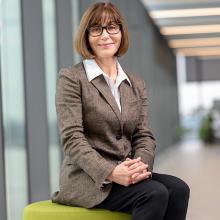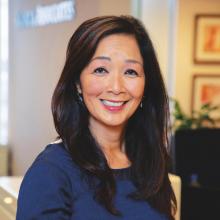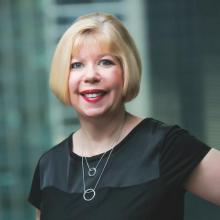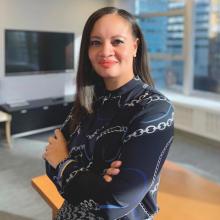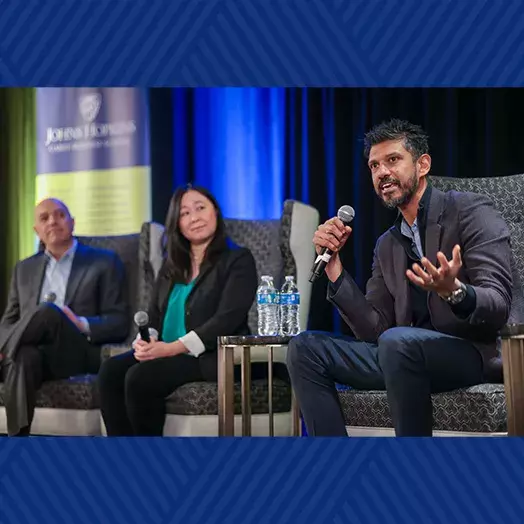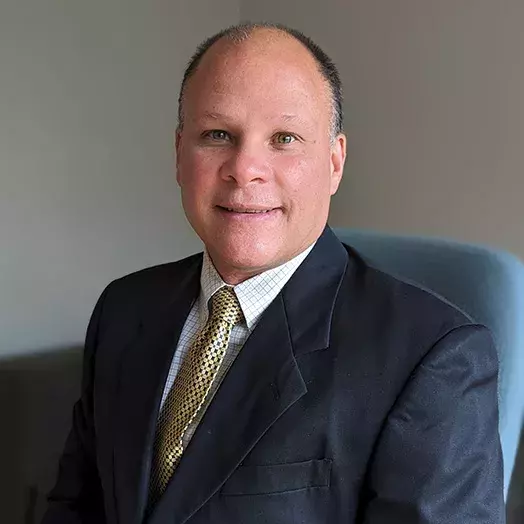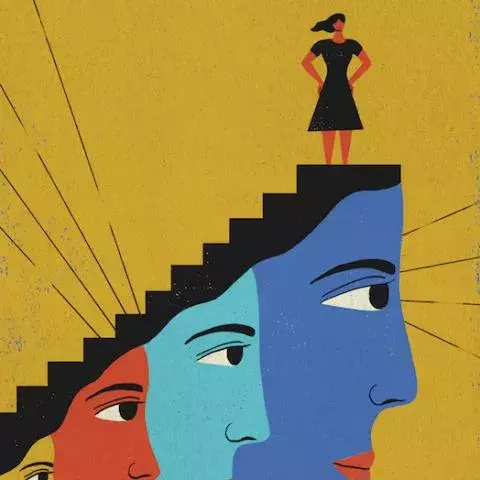
Enduring Lessons
Speak Loudly
Kathleen Sutcliffe
Kathleen M. Sutcliffe, PhD
Johns Hopkins University Bloomberg Distinguished Professor of Business and Medicine and expert on organization theory and organizational behavior.
“One thing I’ll never forget is one of my doctoral advisors telling me I’d gotten really bad career advice because my previous degrees and work experience were completely unrelated to my current work in organizational behavior, and therefore completely counterproductive.
And I thought, ‘Oh, really?’ Because everything I’d learned about interviewing people, both as an undergraduate and in nursing school, about being attentive to people in order to understand what was going on with them in a health care or medical context, was critical, I think, to my ability to be a great researcher.
“Only a long time later did I realize that even my master’s thesis on the factors that contribute to accurate nursing diagnoses and my doctoral dissertation on the factors that contribute to top management teams’ accurate perceptions of their industry environment were actually both looking at the same kind of phenomena.
“Also invaluable to my career was all of the manual labor I got to do in Alaska [after college], working in a crab fishery and as a laborer on the pipeline, because it taught me there are a lot of smart people in the world and they don’t all have PhDs. Understanding that good ideas come from all over the place, from every member of a team, has been extremely useful.
“We are beginning to understand that expertise is context dependent. Just because you’re a doctor, for instance, doesn’t mean you can solve every kind of problem. There is emerging research suggesting that organizations tend to perform better when they operate with the understanding that, even when they have a formal leader, every member of the organization is functionally a leader at different times and in different contexts.
"Women still face obstacles to being promoted to top leadership roles."
Kathleen Sutcliffe, PhD
“It’s true that women still face formidable obstacles when it comes to being promoted to top leadership roles. The frames through which we view one another are persistent and powerful. But one reason for optimism is that it is at least now widely understood that we need structural changes to remedy the situation.
“I have, of course, faced sexism, though I think I was mostly oblivious, which helped. I am also a small person and had to learn early on to speak loudly, and repeat myself, if necessary, to make myself heard, which actually gave me a lot of confidence and made me stronger.
“I also learned persistence, to just keep showing up to do what has to be done, and to let things go — not grasp anything, whether a structure or an idea, too strongly. I think a lot these days about impermanence, how things are always in flux, and that, above all, we need to take ourselves less seriously.”
Be Fearless
Christina Bui, MBA ’00
Christina Bui, MBA ’00
Chief Revenue Officer and Senior Vice President for Business Development at the financial consulting firm Kranz & Associates; Board of Directors at Siembra Mobile (education technology) and Omni Bev (Vietnamese cold brew coffee company); Advisory Board at 3ToZen (customized skincare).
“When you start from scratch, as my family did, you have to be fearless. All of the things that make people successful in business – the willingness to take risks, to think outside the box, to keep going no matter the obstacles – are the things we learn as immigrants when we lose our countries, our language, our old identities, and have to start over.
“In the spring of 1975, when I was nine, Saigon was under siege. My father was in Washington, D.C. A high-ranking officer who presided successfully over ‘Vietnamization,’ he had been rewarded by the U.S. Navy with a full scholarship to American University, where he earned two master’s degrees and a PhD.
“[In Vietnam], we lived a privileged existence, with lots of servants, and chauffeurs who drove me every day to my private French immersion school. But the North Vietnamese were closing in, dropping bombs everywhere, so somehow my mother found a woman, a complete stranger, who for $40,000 in gold would say we were her relatives and get us on an American transport plane. We left the day before they bombed the airport. If we’d stayed another day, we could have been one of the ‘boat people.’ If we’d stayed permanently, we would have been imprisoned or worse. So we were very, very lucky.
"All of the things that make people successful in business- the willingness to take risks, to think outside the box, to keep going no matter the obstacles- are things we learn as immigrants."
Christina Bui
“As soon as we arrived in Washington, D.C., our parents made us go to school – it was full immersion since we spoke no English. Then they sent us off on a bus to summer camp. I cried and cried, but they were smart. Within a year I was speaking English without an accent.
“I studied French and foreign affairs at the University of Virginia, because I wanted to be an ambassador to Vietnam. Everything was pointing me there. I went back for the first time in 1994 when I was working for Johnson & Johnson and realized how Americanized I had become. People saw me as American, and I was shocked to see my cousins, who had spent the best years of their lives in “re-education camps,” and who looked so malnourished and beaten down.
“I have spent years working in senior management in male-dominated industries, helping some of the country’s top engineers, chief financial officers, and other professionals learn to network with clients, to present their work in a compelling and accessible way, and I have done very well. But the glass ceiling persists, and I now believe that if women and minorities are to succeed at the very highest levels, they have to start their own companies, become their own CEOs.
“I tell young people, women, other immigrants, to network, network, network – I call it haphazard networking – and to pay it forward. The thread that has run through my life is wanting to help solve other people’s problems, perhaps because I have always had people in my life who were there to help me. The rewards are exponential, because people who have poured heart and soul into their companies know they can trust you absolutely, that your only goal is to help them realize their dreams.”
Interrupt Biases
Karen Horting, MBA ’00
Karen Horting, MBA ’00
Executive Director and CEO, Society of Women Engineers
“One of the best things that happened to me was in my first paint industry job. I was 26 and managing people who’d been in their jobs 30, 40 years, and there was one guy who was a real challenge. So I called my Dad, as I often did when I was having a problem, and he said, ‘Well, here’s what I know. They would not have put you in this position if they didn’t think you could do it.
So I think you need to remind this person that you’re both there to do a job, you were put in charge of getting these things done, and if he doesn’t want to do them, he has a choice, and that’s to head out.’ So I was terrified, but the next day that’s exactly what I did, and the guy wasn’t happy, but he did what I asked him to do. And I’ll tell you what. It certainly changed the attitude of the other guys, who said, ‘It’s about time somebody stood up to him.’
“Things have changed for women, but not nearly enough. Women are only about 13 percent of the engineering workforce, for instance, and we’re at least half the population, and all of the research shows that the best innovation comes out of diversity.
A lot of organizations have done a good job of raising awareness of unconscious bias, but ... they haven’t done a good job of providing people with tools to interrupt those biases.
Karen Horting
“Working in the paint industry, I experienced firsthand the stifling impact on business of doing things the same way, perpetuating the same old-boy network and the same old ideas, year after year. The second company I worked for had very generous education benefits and made it possible for me to get my MBA at Carey, but my managers there didn’t see me as leadership material. It was classic – they ended up giving the job I wanted to a guy who was a lot less qualified and just not very smart. When I left the company as a result, my boss said, ‘Gee, I didn’t realize you were so serious about your career.’
“The exciting thing about engineering is that there isn’t anything in our lives that isn’t touched by it, from transportation to medical technology to clean water and air. So if women aren’t moving into engineering roles, and, even more important, into engineering leadership roles, how can we have the best innovation?
“A lot of organizations have done a good job of raising awareness of unconscious bias, but the big obstacle to change is that they haven’t done a good job of providing people with tools to interrupt those biases. And by that, I mean doing things like taking a look at how they do performance appraisals, or how they evaluate male versus female job candidates. There’s a lot of data, for instance, showing things like emotions are mentioned more frequently in women’s performance appraisals than men’s. So employers can make a conscious commitment to focus on accomplishments and skill sets rather than personality issues.
“Women are nevertheless changing the culture of leadership in all sorts of powerful ways. We’re collaborative, we’re good team builders and leaders, and I think we may be better at not having to know everything. I always say if I already knew everything, why would I need my team? And when people feel they’re a truly valued part of a team, they’re more productive, more innovative, and more inclined to be excited about the mission you are trying to accomplish.”
Driving Cultural Change
Elicia Felix-Hughey, MBA ’11
Elicia Felix-Hughey, MBA ’11
Senior Vice President, Global Human Resources Sony/ATV Music Publishing.
“I acquired my work ethic from my mom, who, after my parents divorced, worked three jobs. She would leave her day job at 3 p.m., go to another job right after that, come home at 7 p.m., sleep for a couple of hours, then get up at midnight and head over to the old Whitestone Movie Theater to clean the theaters after the last show. We lived in an extremely dangerous housing project in a not-so-nice neighborhood, we didn’t have a car, so she took the bus and subway. What I remember most is the fear every night that she would not make it back home safely. But she always did arrive home safely and never showed signs of fear, exhaustion, or sadness. She exuded nothing but strength.
“My parents and I never talked about schooling or a career. My family, especially my father, loved music, and so did I. When I was younger, I learned to play the clarinet and the saxophone, and I sang in the choir. There was always loud music playing, booming out of an apartment or at a block party. It was what we listened to for fun, but I never saw it as a way to support myself.
“I landed a job right out of high school at a medical malpractice law firm in Manhattan, making $18,000 a year. After I worked several months as a receptionist, the HR manager offered me an HR Assistant role. I didn’t know the first thing about HR , but I was seamlessly able to transition into the role. I was very organized, paid attention to detail, and was able to catch on very quickly.
“I’ve been lucky. I’ve had amazing mentors and champions throughout my career, and I’ve never had to search for a job. Your network, your work ethic, your reputation, your personal PR – they just follow you.
It’s said that ‘sameness plus sameness breeds sameness.’ And the last thing we want is sameness. What we want is to innovate and grow
Elicia Felix-Hughey
“Still, what happened last year was no less than a miracle. At EMI music publishing (before it was acquired by Sony/ATV), where I became vice president, human resources, I met Jon Platt, who at the time was head of creative. When Jon was named chair and CEO of Sony/ATV Music Publishing, he called and asked me to join him as senior vice president of global human resources, one of the top positions on his newly minted management team. Everything about the job is incredible, but the most exciting part is being part of a team that’s determined to make a difference by driving positive cultural change. We are investing in the development and growth of our people and showing them they’re valued. We’re diversifying our staff and creating a collaborative, oneteam environment. We’re raising the bar for the entire industry.
“We’re continuing to build a leadership team that understands the benefits of collaboration, but also of diversity. We’re hiring people with different skills, from different backgrounds, of different ethnicities and sexual orientations. Before Jon and I started, we had zero women in senior leadership. We’ve seen significant growth in this area and are continuously looking to make further improvements. We’re laser focused on why all of this is important, especially in today’s society, and we’ve done all of this in less than a year.
“It’s said that ‘sameness plus sameness breeds sameness.’ And the last thing we want is sameness. What we want is to innovate and grow.”
